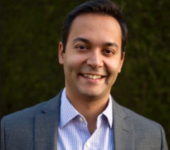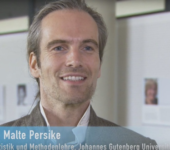Best of AACE and SITE Keynotes 2015-2017: Video Recordings
Did you know that the digital library LearnTechLib not only archives conference papers, electronic books, reports, and journal articles, but also contains videos of past keynotes and invited talks? With so many innovations and ideas around, edtech researchers and practitioners needs to create their own niche. Keynote recordings are an excellent way to acquire an understanding of the big ideas in the field. We recommend browsing the archive and watching out best of selection of conference talks from SITE, AACE E-Learn, EdMedia, and GlobalLearn.
EdMedia 2017: The Futures of Higher Education – Diana Oblinger, USA
In Diana Oblinger’s 2017 EdMedia talk titled “The Futures of Higher Education,” she states that world is so connected: we share different streams of media, information, and technologies. These all impact how content is delivered in a traditional classroom environment, which in turns provides new avenues to cater to different types of learners. To view her presentation, click this link: http://learntechlib.org/view/180528
 About the speaker: Dr. Diana G. Oblinger is President Emeritus of EDUCAUSE. Her work mostly focuses on advancing higher education through innovative technologies and media. She is renowned for her leadership in teaching, technology innovation, and international outreach.
About the speaker: Dr. Diana G. Oblinger is President Emeritus of EDUCAUSE. Her work mostly focuses on advancing higher education through innovative technologies and media. She is renowned for her leadership in teaching, technology innovation, and international outreach.
Key takeaways: People should watch this talk to critically examine how information technology impacts learning experiences. Her talk is particularly insightful for those who wish to explore emerging alternative credentials, learning management systems, and various educational environments.
ELearn 2017: Serving Social Justice & Pedagogical Innovation with Open Educational Practices – Rajiv Jhangiani, Canada
In Rajiv Jhangiani’s 2017 E-Learn talk titled “Serving Social Justice & Pedagogical Innovation with Open Educational Practices,” he states that pedagogical innovation requires people to use open source materials available on the Internet. He talks about the control value of course materials, as the market will inflate costs every year with brand new editions of textbooks. Most importantly, this talk will inform others on how to access knowledge creation, instead of simply finding content. He goes on to support this by providing diverse educational resources anyone can use. To view his presentation, click this link: http://learntechlib.org/view/181411/
 About the speaker: Dr. Rajiv Jhangiani is the University Teaching Fellow in Open Studies and a Psychology Professor at Kwantlen Polytechnic University in Vancouver, BC. Much of his research focuses on open education, as well as teaching and learning.
About the speaker: Dr. Rajiv Jhangiani is the University Teaching Fellow in Open Studies and a Psychology Professor at Kwantlen Polytechnic University in Vancouver, BC. Much of his research focuses on open education, as well as teaching and learning.
Key takeaways: People should watch this video to gain a better understanding of open education, not limited to just resources, but also emphasizing practices. Knowledge creation and the future environment of education are also highlighted.
EdMedia 2016: Revolution or Evolution? Lessons from Nearly a Half Century of Computers and Learning – Saul Carliner, Canada
The speaker says that there is a shift in traditional teaching that started with the growth of technology including computers, smartphones, and tablets. Teachers are replaced by screens in virtual classrooms and the launch of Massive Open Online Courses (MOOCs) expanded opportunities within education. The two most prominent evolutionary tools were Microsoft Word and PowerPoint. Today in the world of educational technology, they might be boring tools, but much of existing technology were adapted from these tools. Look at Word processing for example, this platform led to the creation of blogs and slide structures. Each of which have become the foundation of today’s e-learning tools. To view her presentation, click this link: https://youtu.be/ml6M1PgCV54
 About the speaker: Professor Saul Carliner is in the Department of Education at Montreal’s Concordia University. His research and teachings are focus on materials designed for learning and communication, the management of groups producing these materials, and the transfer of research to practice.
About the speaker: Professor Saul Carliner is in the Department of Education at Montreal’s Concordia University. His research and teachings are focus on materials designed for learning and communication, the management of groups producing these materials, and the transfer of research to practice.
Key takeaways: People should watch this talk in order get acquainted with underlying patterns in educational technologies, particularly learning management tools and information systems used by education administrators.
Global Learn 2015: Lean Video Production – Malte Persike, Univ. of Mainz, Germany
In many lines of research, inverted classroom teaching has been proposed for its many advantages in engaging students. Evidence shows that inverted classrooms have been ineffective compared to traditional teaching. Studies from undergraduate students studying psychology have indicated that one key determinant of better learning outcomes is through applying conventional methods of teaching. This provides an important incentive to digitize teaching: the application of resource efficiency. Many universities and lecturers fully accept video-based teaching methods; however, it would be even more effective if video production is done without affecting the time and resources of the lecturer. There are ways of recording course content using high-quality technology which would reduce the stress of the instructor. To view her presentation, click this link: https://www.learntechlib.org/p/151470/
 About the speaker: Dr. Malte Persike is a psychologist and researcher at the Johannes Gutenberg University in Mainz (Germany). There he dedicated himself to the teaching of statistics and empirical methods, thus taking care of a huge challenge in the study of psychology. In 2012, Dr. Malte Persike received the Ars Legendi price for excellent higher education for his innovative teaching and testing concepts.
About the speaker: Dr. Malte Persike is a psychologist and researcher at the Johannes Gutenberg University in Mainz (Germany). There he dedicated himself to the teaching of statistics and empirical methods, thus taking care of a huge challenge in the study of psychology. In 2012, Dr. Malte Persike received the Ars Legendi price for excellent higher education for his innovative teaching and testing concepts.
Key takeaways: People should watch this talk in order to familiarize themselves with using digital technologies to deliver conventional teaching methods, which is defined as commonly accepted customs of teaching.
Topic V – SITE 2016: Plan B Education to Improve the World – Mark Prensky, USA
Today’s education, specifically K-12, is suffering due to limited technology being incorporated in the classroom. Another contributing factor is the misplaced values from government agencies which impact the funding for school districts. Education has always been focused on individual growth; which is great, however improving the system means identifying the key skill sets needed in today’s job market and delivering that to the classroom environment. Today, far too many schools solely focus on the liberal arts, which may be beneficial for critical thinking, communication, and reasoning, but are not enough to make students competitive in the job market. The lack of practical skill sets such as coding and financial literacy have caused many institutions to re-think and shift their learning models. To view her presentation, click this link: https://www.learntechlib.org/p/173239/
 About the speaker: Marc Prensky is an author and lecturer who looks at the future of education. He is presently Founder and Executive Director of the Global Future Education Foundation and Institute.
About the speaker: Marc Prensky is an author and lecturer who looks at the future of education. He is presently Founder and Executive Director of the Global Future Education Foundation and Institute.
Key takeaways: People should watch this talk in order to gain a stronger insight on the core of how education makes a direct impact on society’s long-term future. The speaker explores the adaptation of education over the years and how solution-based learning can address real world issues.
